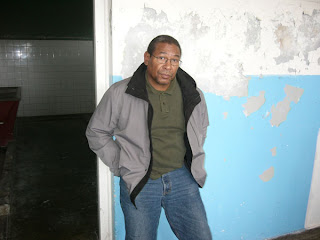I am trying to fully understand the trip Jack and I just took, the people, the places, the events, past and present. It encompasses so much, the details of it are overwhelming. Just traveling from Oakland, California to Cape Town, South Africa is a monumental task. You are literally moving through space and time and you feel the enormous weight of them both as you make that trip. It was as if we moved from the here and now of our lives in America through space not just to another spot on the globe, but to another time, another era.
The effect of so much of what South Africa was is still present, you can see, hear, smell, and touch and be touched by it. I know that every place holds its history. If it is not immediately evident, with a little digging it can be revealed. But in South Africa all one needs to do is turn a corner, glance out a window, or look into the eyes of the person you just asked for directions and you can feel the weight of the past pressing in on the present. The present is such a fragile thing, and so many people must work so hard to make sure the past remains in the past. Navigating the present and mapping the future are serious endeavors that are not taken for granted, because every moment in the present is so delicate, so valuable, so precious. We don't have that sense of time here, we walk over, around, and through our history as though it never happened. So many of us take today for granted and assume the arrival of tomorrow without reflection and only a little worry about those things that matter the least. As we go about our daily lives, as we move through space and time ignoring the weight of our collective past and indifferent to the fragility of the present, we are putting off a task that only grows larger the longer it is ignored.
The Blood Knot is a journey through space and time, it began with our trip to Cape Town, South Africa. Right now I am not sure where it will lead or when it will end, but I look forward to the rest of the journey.
The effect of so much of what South Africa was is still present, you can see, hear, smell, and touch and be touched by it. I know that every place holds its history. If it is not immediately evident, with a little digging it can be revealed. But in South Africa all one needs to do is turn a corner, glance out a window, or look into the eyes of the person you just asked for directions and you can feel the weight of the past pressing in on the present. The present is such a fragile thing, and so many people must work so hard to make sure the past remains in the past. Navigating the present and mapping the future are serious endeavors that are not taken for granted, because every moment in the present is so delicate, so valuable, so precious. We don't have that sense of time here, we walk over, around, and through our history as though it never happened. So many of us take today for granted and assume the arrival of tomorrow without reflection and only a little worry about those things that matter the least. As we go about our daily lives, as we move through space and time ignoring the weight of our collective past and indifferent to the fragility of the present, we are putting off a task that only grows larger the longer it is ignored.
The Blood Knot is a journey through space and time, it began with our trip to Cape Town, South Africa. Right now I am not sure where it will lead or when it will end, but I look forward to the rest of the journey.



































